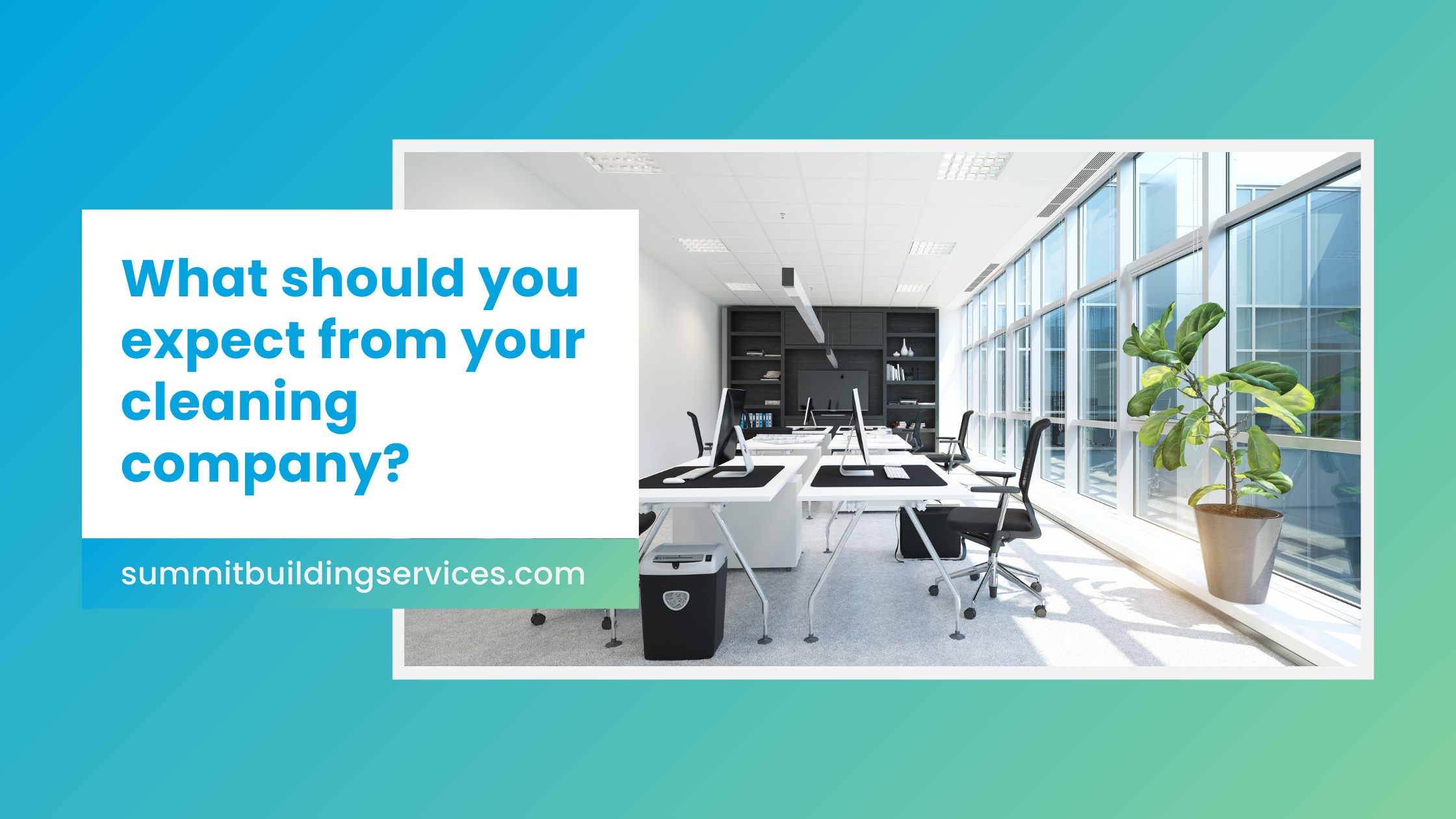1 min read
How Professional Carpet Cleaning Extends Carpet Lifecycle
Is Carpet Cleaning Worth the Price Tag? If you’ve recently installed new carpeting in your building, you understand the expense associated with the...

When it comes to maintaining a clean and healthy facility, hiring a janitorial provider is only the first step. The real differentiator between average and exceptional service lies in one key area: quality assurance.
A comprehensive quality assurance process ensures that your cleaning standards are consistently met, your facility remains safe and presentable, and any issues are quickly resolved. But what does that process actually look like? And what should you expect from a janitorial company that takes quality seriously?
Let’s break down what a truly thorough quality assurance program should include—so you can confidently assess whether your current or future provider is meeting the mark.
A clean facility does more than look good. It promotes health, enhances first impressions, improves employee satisfaction, and supports your brand image. In high-traffic or specialized environments—like medical buildings, schools, or industrial sites—cleanliness is even more critical.
Without an active quality assurance process, you’re relying on guesswork. A provider might clean your space today, but what ensures they’ll do it to the same standard tomorrow, or next week? Consistency and accountability are what turn a good janitorial provider into a trusted long-term partner.
Clear Standards and Scope of Work
Every quality assurance process should begin with clearly defined expectations. Your janitorial provider should provide a written scope of work detailing:
This document becomes the foundation for measuring performance. Without it, there’s no benchmark to compare against. Make sure this scope is tailored to your facility—not just a generic checklist.
Regular Inspections and Audits
One of the most critical components of a quality assurance program is regular inspections. Your janitorial provider should have a system in place for conducting scheduled (and sometimes unscheduled) audits of their work. These inspections help identify missed tasks, spot recurring issues, and reinforce accountability.
Expect inspections to be:
Ask how often inspections are conducted and who performs them—ideally, it should be a supervisor or dedicated quality control specialist.
Transparent Communication Channels
A reliable janitorial partner should offer open lines of communication. Whether it’s a simple question or an urgent concern, you need to know who to contact and how fast you’ll get a response.
Look for providers that offer:
Having consistent communication reduces misunderstandings and helps you stay proactive about any issues before they escalate.
Performance Tracking and Reporting
Quality assurance isn't just about inspections—it’s about using that data to drive improvement. Your provider should track key performance indicators (KPIs) that reflect cleaning outcomes and client satisfaction.
Common KPIs include:
A modern janitorial provider may also use software tools that offer client access to real-time reports, making it easy to stay informed without back-and-forth emails.
Well-Trained Staff and Ongoing Education
No quality assurance system will work without trained staff to carry it out. You should expect your janitorial provider to invest in comprehensive training for their employees. This includes:
In addition to onboarding, ongoing education ensures staff stay up to date with the latest cleaning standards and technologies. Certifications in green cleaning, infection control, or floor care are added bonuses.
Rapid Issue Resolution
Even with the best systems in place, mistakes happen. What matters is how quickly and effectively your provider handles them. A strong quality assurance process will include a clear system for:
You should feel confident that if a task is missed, it will be corrected quickly and not repeated. Responsiveness is a key indicator of professionalism.
Client Feedback Integration
A quality-driven janitorial provider values your feedback—not just during the contract signing, but throughout the entire relationship. They should proactively ask for your input through:
This feedback should be used to refine cleaning schedules, improve staff training, or adjust priorities as your needs evolve.
Continuous Improvement Philosophy
Finally, a comprehensive quality assurance process doesn’t stand still. The best providers are always looking for ways to improve. That could mean adopting new equipment, introducing green cleaning alternatives, or refining internal processes based on client needs and industry best practices.
You want a partner that doesn’t just meet expectations—they aim to exceed them over time.
Quality assurance is more than a checklist—it’s the backbone of a successful janitorial service. If your provider has a detailed process in place that includes inspections, training, reporting, and client collaboration, you’re more likely to enjoy consistent, high-quality results.
And if they’re falling short in any of these areas, it may be time to reassess. Cleanliness impacts your operations, reputation, and the well-being of everyone in your facility. It’s worth partnering with a company that treats quality as a priority, not an afterthought.
.png)
1 min read
Is Carpet Cleaning Worth the Price Tag? If you’ve recently installed new carpeting in your building, you understand the expense associated with the...
.png)
Incorporating Tech to Improve Cleaning Standards New and improving technologies have had drastic impacts on business, communication, and...
Maybe you've never contracted cleaning services from a janitorial services company. Maybe your company has, but it is your first time having to go...